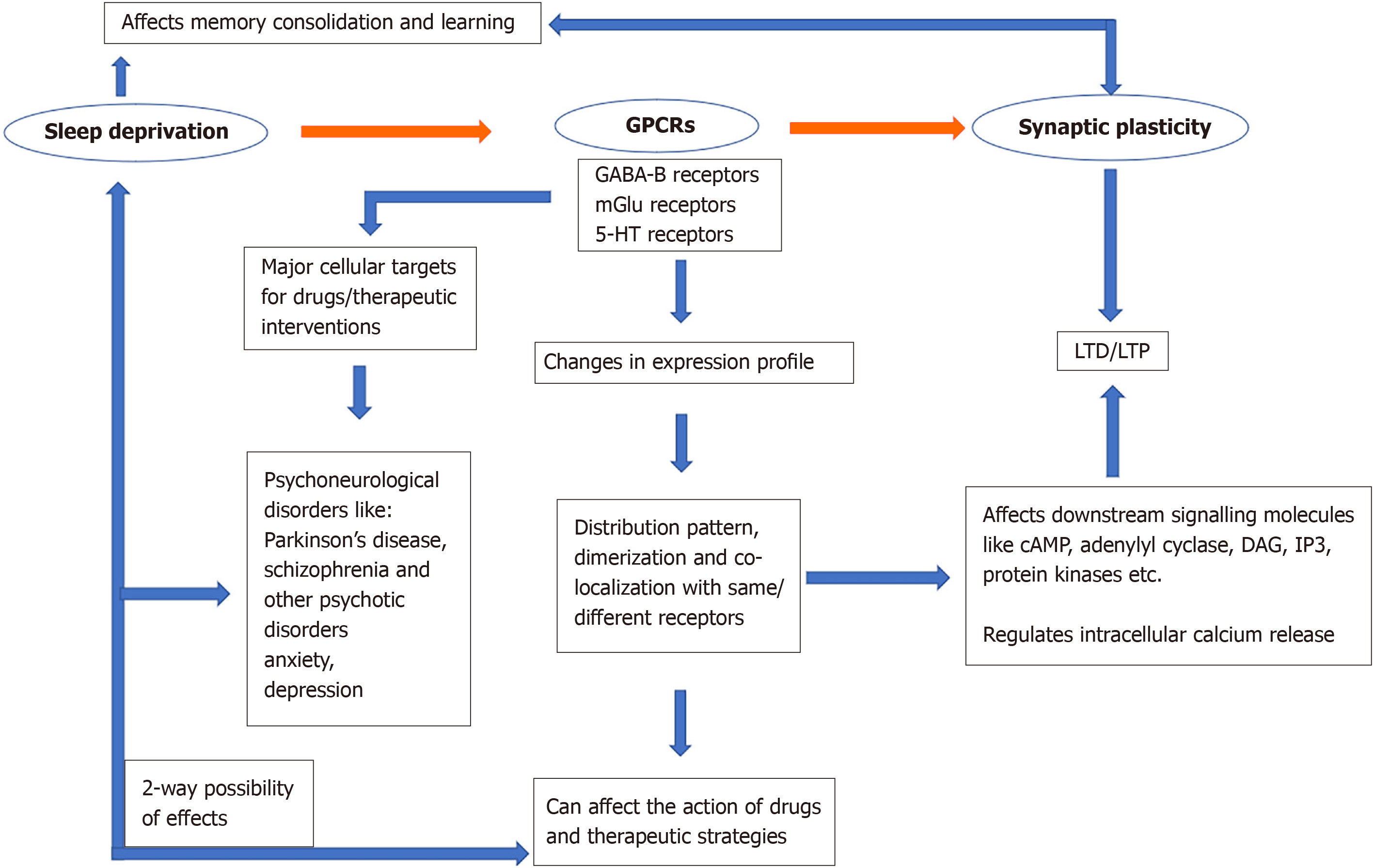Copyright
©The Author(s) 2021.
World J Psychiatr. Nov 19, 2021; 11(11): 954-980
Published online Nov 19, 2021. doi: 10.5498/wjp.v11.i11.954
Published online Nov 19, 2021. doi: 10.5498/wjp.v11.i11.954
Figure 1 G-protein coupled receptors: Potential key-players in psychiatric therapeutics through modulation of synaptic plasticity in sleep deprivation.
A correlation between sleep deprivation, G-protein coupled receptors (GPCRs) and synaptic plasticity. Memory consolidation and learning are strengthened during sleep and synaptic plasticity, through long term potentiation (LTP) and long term depression (LTD), can regulate the processing of these functions. Upon sleep deprivation, GPCRs like gamma-amino butyric acid-B, metabotropic glutamate and 5-hydroxytryptamine receptors experience changes in their expression profiles in terms of distribution, dimerization and co-localization with their own or different subtypes of receptors. Changes in these and the associated transduction pathways can in turn affect LTP and/or LTD, causing alterations in neuronal network activity. Since GPCRs are one of the most dynamic cell membrane proteins, they are the targets of many drugs used in various psychoneurological disorders. Therefore, a change in the expression profile of these receptors through sleep deprivation can reasonably alter the way in which these drugs exhibit their therapeutic action. Conversely, therapeutic strategies themselves can affect sleep causing a change in the GPCR expression profile and the downstream cascade. GPCR: G-protein coupled receptors; GABA-B: Gamma-amino butyric acid-B; LTD: Long term depression; LTP: Long term potentiation; mGlu: metabotropic glutamate; 5-HT: 5-hydroxytryptamine; cAMP: Cyclic Adenosine Monophosphate; DAG: Diacylglycerol; IP3: Inositol-1,4,5-triphosphate.
- Citation: Parmar S, Tadavarty R, Sastry BR. G-protein coupled receptors and synaptic plasticity in sleep deprivation. World J Psychiatr 2021; 11(11): 954-980
- URL: https://www.wjgnet.com/2220-3206/full/v11/i11/954.htm
- DOI: https://dx.doi.org/10.5498/wjp.v11.i11.954









